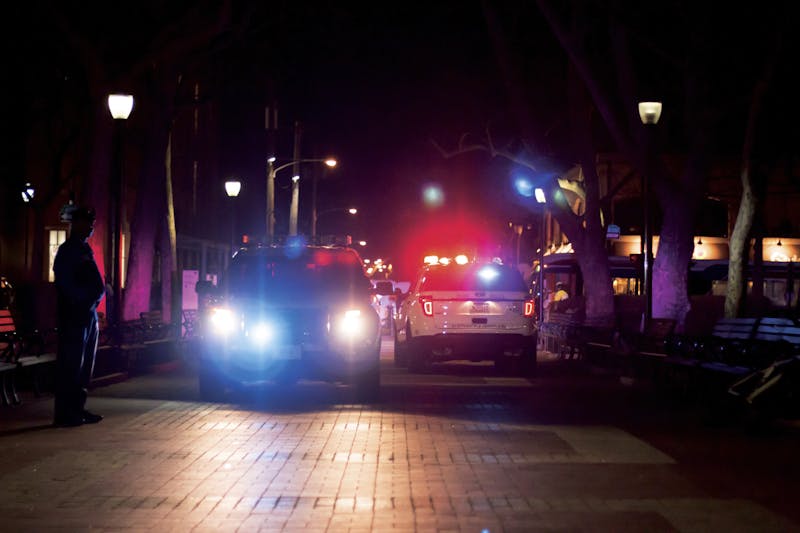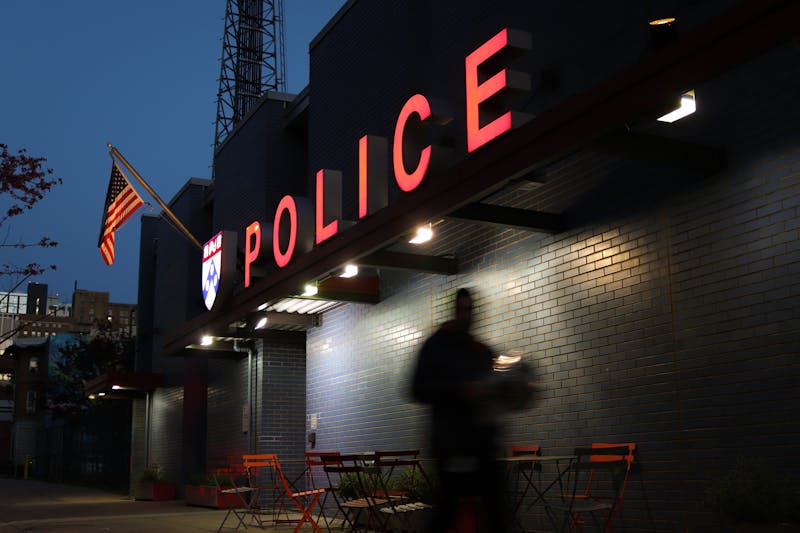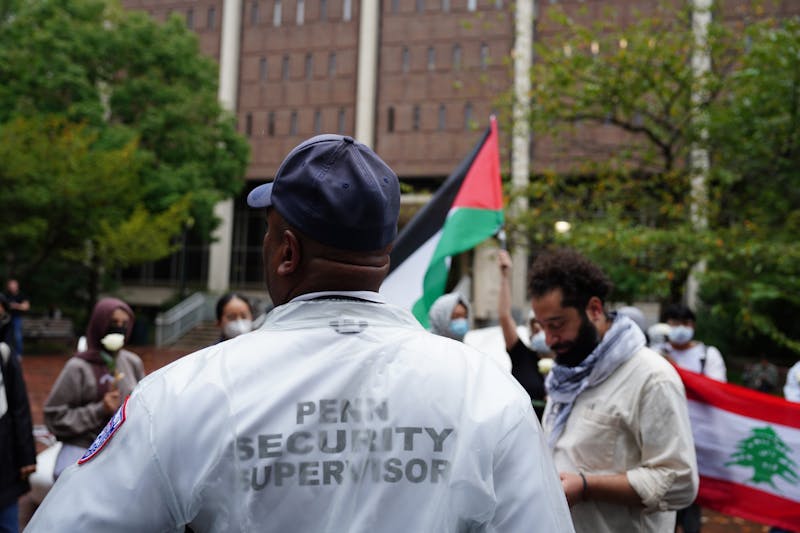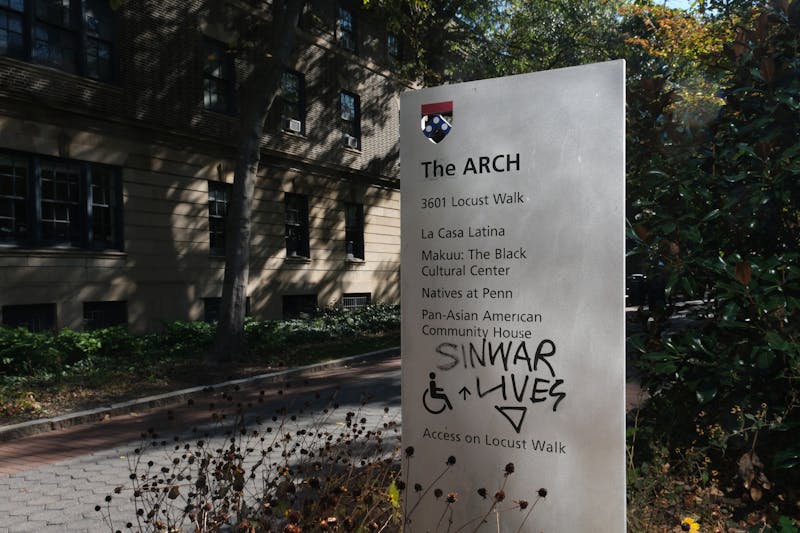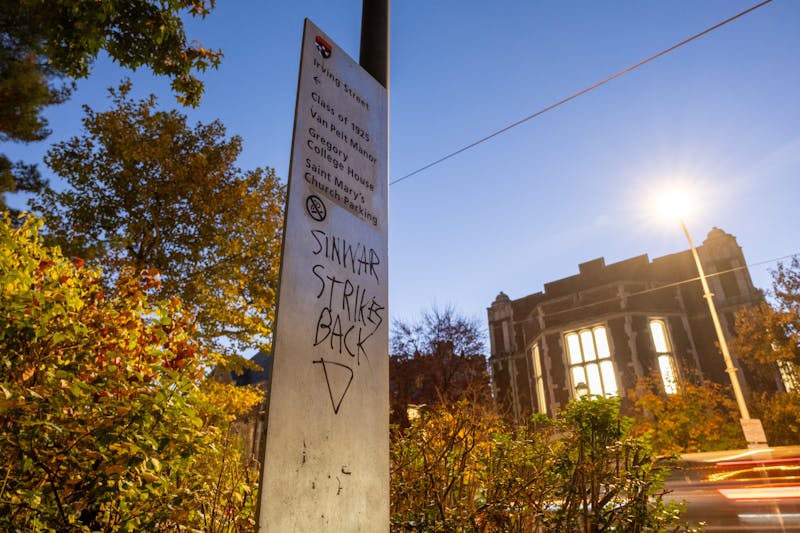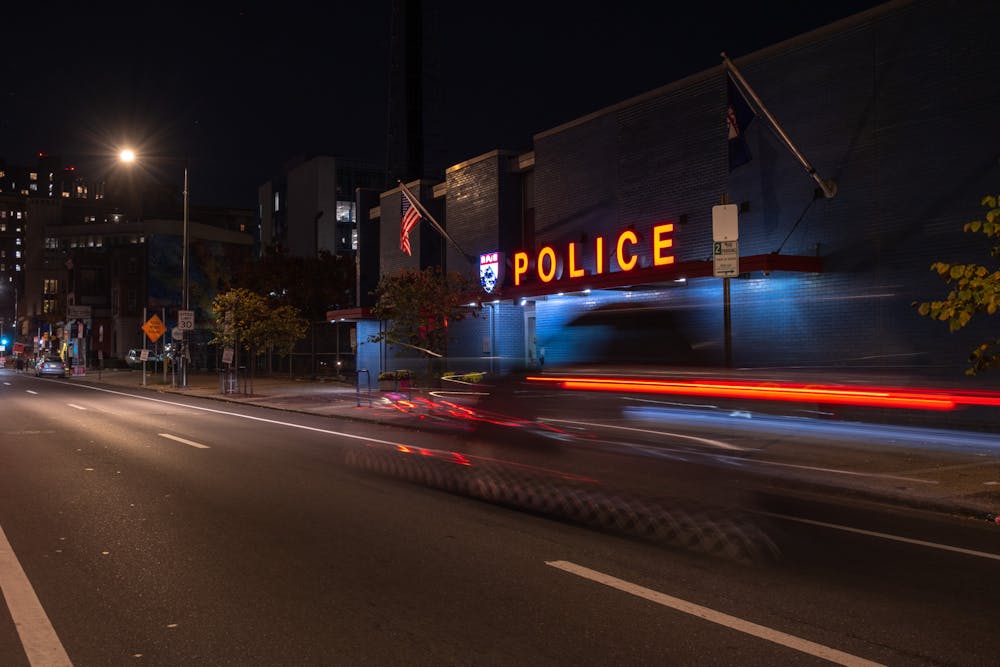
Penn's raid of an off-campus residence home to pro-Palestinian activists was in connection to an ongoing criminal vandalism investigation — and Interim President Larry Jameson was "not involved" in the decision to search the property, the University said.
The search — which took place on the morning of Oct. 18 and was publicly disclosed on social media by Penn Students Against the Occupation of Palestine on the evening of Oct. 21 — followed Penn's obtaining of a search warrant which was reviewed by the Philadelphia District Attorney's office and approved by a bail commissioner. The investigation relates to a Sept. 12 incident when pro-Palestinian activists claimed responsibility for vandalizing of the Benjamin Franklin statue in front of College Hall with red paint, according to a report in The Intercept.
“Any legal action taken by the UPPD is based on the violation of laws in the Commonwealth of Pennsylvania, not the policies of the university,” Vice President of DPS Kathleen Shields Anderson wrote in a statement to The Daily Pennsylvanian.
DPS previously confirmed that Penn Police officers had conducted a search at an off-campus location on Oct. 18.
“This is a disgusting escalation from the University, and comes after a year of disciplining, arresting, and brutalizing their own students who organize for Palestinian liberation, and they made the deliberately traumatizing and threatening decision to invade our home,” the house residents said in a joint statement to The Philadelphia Inquirer.
PAO’s Instagram post announcing the raid alleged that 12 Penn Police officers and one Philadelphia Police officer “stormed the house in full tactical gear” after pointing a gun at a neighbor and threatening to break down the door, and “point[ed] rifles and handguns” at residents’ heads as they exited their rooms. PAO said one student was taken in for questioning and saw their personal device seized "on suspicion of vandalism."
The post also alleged that officers did not show a warrant or provide their names or badge numbers.
The DP was unable to confirm these details about the search.
"Interactions with police can be stressful and upsetting, whether one is the victim of a crime or the subject of an investigation," Shields Anderson wrote. "Throughout the execution of the warrant, our officers took care to explain to all involved what was occurring and to treat them with all respect."
The DP has repeatedly attempted to obtain a copy of the warrant in order to better understand the terms of the search. Attempts to do so through the Philadelphia Municipal Court System, the Philadelphia Police Department, the District Attorney’s Office, and the University of Pennsylvania Police Department have been unsuccessful.
Although the circumstances surrounding the search remain unclear, “in terms of the First Amendment, if the search warrant was based on opposition to views the individuals expressed, then that would be viewpoint discrimination and would be very concerning," Senior Program Officer for the Foundation of Individual Rights and Expression Haley Gluhanich wrote in a statement to the DP.
She added that if the execution of the warrant “was based on probable cause that the individuals engaged in unlawful behavior … then there would be no First Amendment violation.”
In a statement, the Penn Law National Lawyers Guild called the raid “an unprecedented violation of students’ rights … to safety and security in their own homes.”
“Penn Law National Lawyers Guild calls on all protectors of free speech and association to condemn this unjustified act of police violence designed to chill students’ rights to protest genocide,” the group wrote. “In the face of university sanctioned violent suppression, we stand firm in our commitment to protecting the right to free speech on campus, divestment, and a free Palestine.”
The Oct. 18 raid drew scrutiny from several local politicians who represent Penn — including 2013 Engineering graduate and Pennsylvania state Rep. Rick Krajewski (D-Philadelphia) and Philadelphia City Councilmember Jamie Gauthier — as well as pro-Palestinian groups throughout the greater Philadelphia area.
Krajewski wrote in a statement on X that he “was horrified to learn” of the Friday morning raid, which he wrote took place in the Spruce Hill neighborhood of West Philadelphia, adjacent to the University's campus.
“It is completely unacceptable and disturbing that a dozen officers armed with tactical gear and assault rifles threatened the safety of unarmed young people who are not only students, but our neighbors,” he wrote.
A spokesperson for Gauthier wrote in a statement that his office is “seriously concerned” by the “extreme manner in which” the search warrant was executed.
“From the start of this situation, Councilmember Gauthier has urged every party to de-escalate when possible,” the spokesperson wrote. “This action seems counter to this goal.”
The Daily Pennsylvanian is an independent, student-run newspaper. Please consider making a donation to support the coverage that shapes the University. Your generosity ensures a future of strong journalism at Penn.
Donate







